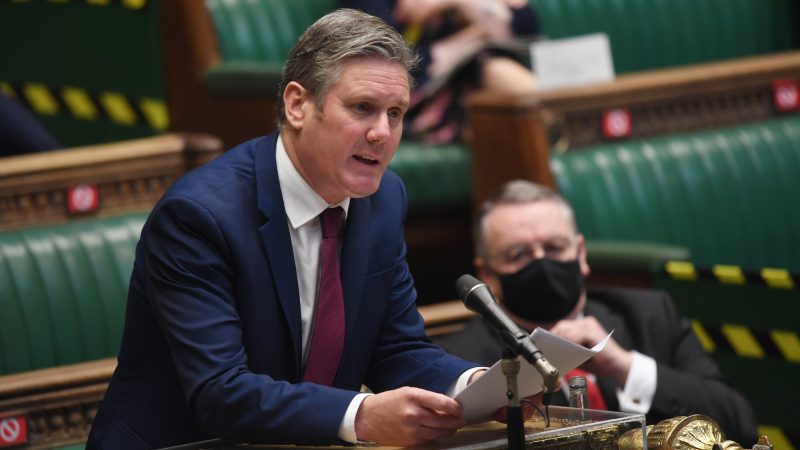
In his speech on Thursday morning, Keir Starmer gave us a glimpse of his plans for a future Labour government. The Labour leader outlined the five “missions” that will be the “defining work” of his government: securing the highest sustained growth in the G7, making Britain a clean energy superpower, building an NHS fit for the future, making Britain’s streets safe and breaking down the barriers to opportunity at every stage, for every child. The speech was light on the details of how Labour would achieve these ambitions – which was somewhat expected; the party said ahead of the event that it would set out “over the coming months” measurable ambitions for each mission and “some of the first tangible steps to achieving them”.
The missions themselves cover fairly familiar themes. Starmer set out plans to transform the UK into a clean energy superpower and end the use of fossil fuels in the country’s power system by 2030 at conference last year. Shadow Health Secretary Wes Streeting has been developing Labour’s plans to reform the NHS for many months now, and just in the last couple of weeks, Shadow Home Secretary Yvette Cooper has been fleshing out the party’s plans to reform policing. The party said the chosen themes “flow from our diagnosis of the country – the challenges we face and the opportunities ahead of us”. Notably, key issues like housing and immigration did not get a mention in the missions, despite the party’s strong criticism of the government’s record in these areas.
That being said, the missions achieved what was a central aim of yesterday’s speech: setting out a clear contrast between the short-term, reactive politics of Rishi Sunak’s five priorities and Labour’s ambitious, forward-looking vision for government. The Prime Minister’s pledges were far more focused on fixing immediate problems – some of which created by 13 years of Tory government – than looking to the future. Though we await the details of Labour’s plans, Starmer’s speech was a stronger pitch to the electorate than Sunak’s and a first, small step towards the party’s election campaign.
Driving the news today is the anniversary of the beginning of the war in Ukraine. In a speech marking one year since Russia’s invasion, Ukrainian President Volodymyr Zelensky declared that it had been the “year of invincibility”. He said: “We did not raise the white flag and began to defend the blue and yellow. We were not afraid, we did not break down, we did not surrender.” He paid tribute to the strength of the Ukrainian people, telling viewers: “We withstand all threats, shelling, cluster bombs, cruise missiles, kamikaze drones, blackouts and cold. We are stronger than that.” Drawing his address to a close, Zelensky said: “It was a year of resilience. A year of care. A year of bravery. A year of pain. A year of hope. A year of endurance. A year of unity. The year of invincibility. The furious year of invincibility. Its main result is that we endured. We were not defeated. And we will do everything to gain victory this year.”
In comments overnight, Starmer declared that Britain’s support for Ukraine “is as firm and unstinting today as it was on that dark day one year ago”, adding that the “resolve and the bravery of the Ukrainian people” has “doomed Putin’s barbaric invasion to failure”. The Labour leader said he was “deeply moved” on his recent visit to Kyiv by the way the Ukrainian people are continuing with their lives: “Despite the appalling suffering being inflicted upon them, they remain steadfast and united. As we mark this solemn anniversary and look ahead to the coming months, we must do the same. Regardless of what other political disagreements we may have, we stand in lockstep with the government on this issue.”
Sign up to LabourList’s morning email for everything Labour, every weekday morning.



More from LabourList
‘Labour’s quiet quest for democratic renewal’
‘Labour promised to make work pay. Now it must deliver for young people’
‘Council Tax shouldn’t punish those who have the least or those we owe the most’